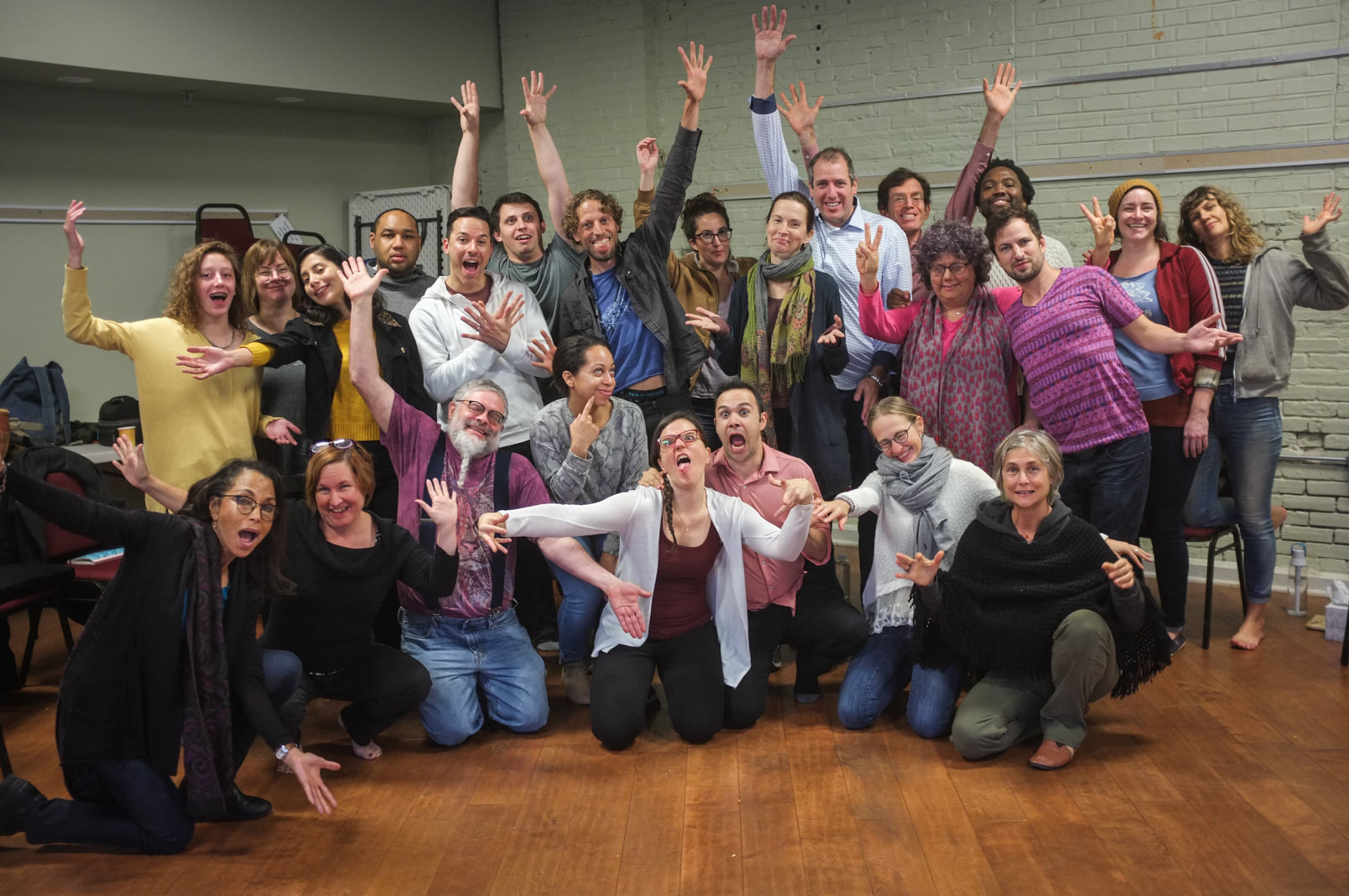One of my mottos has long been, “Peeling off the layers to reveal the real.” Often, I ask for a message of guidance before heading to dreamland. The Sleep Faerie always delivers. The words that came through loud and clear were “Bare Boldly”. I know it ties in directly with some of the teaching I have been doing, but also, on a deeper level, the inner work I have been engaged in over the past few years. Coming out from behind the pseudo-safety shelter of the ‘you can’t see me if I am hiding under this blanket’ mindset that little kids have. I would peek out and then say, “Nah….not comin’ out yet.” Then I would dive for shelter. Back and forth I would go. Still there somewhat, but nowhere near as often.
Recently, an opportunity to do both showed up in the form of a modality called Authentic Relating. It is what the leaders of the trainings and classes refer to as an ’embodied practice,’ that invites participants to fully feel whatever arises. “Piece of cake.” I thought since I have attended so many workshops over the years that I imagine I have seen, heard and done it all. I was in for a surprise, such that I allowed two weeks to pass before writing this piece. Before the training I took called The Art of Being Human- Level 1, in Philly the weekend of October 19th and 20th ( a birthday gift to myself, since I had turned 61 on the 13th) I would have been writing it in my head even before I left the building to head home. Instead, I took notes for my personal edification in my journal and let the feelings that arose, simmer. Integrating it was more important than writing about it.
One of my challenges has long been allowing myself full experience for myself and not just so that I could share it with the world. That was one area where I was not fully present in my relationships since I was nearly constantly giving out without taking in. It harkens back, as I have realized, to my childhood diagnosis of asthma. I wouldn’t permit myself full exhalation since I couldn’t be assured of full inhalation afterward. It mirrored my tendency to be ON much of the time. I had to remind myself throughout the weekend that I was there to be a student. The gracious facilitator, Jason Digges allowed for space for my input as we all explored what it means to be fully human.
What is Authentic Relating?
AR is a set of Principles and Practices designed to cultivate trustable, empowering and nourishing connections and relationships with everyone in your life. Authentic is being real, relating is being in connection with another. You can be authentic but not be in connection, and you can be in connection and not be authentic. To practice AR, you need to have both.
At its core, AR is making the implicit explicit, the hidden revealed, and the unconscious conscious. This implies that AR is only about revealing more and more of what’s already here, rather than importing anything new.
AR is an embodied practice. You don’t think about it, you are it. It is a way of being, not of thinking. Once you practice the tools of AR long enough, it becomes your natural way of being.
The Five Practices
- Welcome Everything
- When we welcome ourselves and our experience we can learn to welcome others as they are, without fixing them, changing them, judging them, pushing them away or guarding against them
- Practice: Welcome whatever arises in your awareness and perception, no matter what it is. Welcome negative feelings, fears, anger, sadness, in yourself and others
- Outcome: We are all humanized and made whole
- Assume Nothing
- We assume as a way to create predictable environments because it is easier to assume than to take the time and energy to make contact with reality as it is. Some assumptions are right, but many are wrong, and they get us into trouble
- We reflexively react when we assume, and we relate to our past. We intelligently respond when we don’t assume, and we relate to the present moment
- Practice: Notice your assumptions and check them out in reality, with others. If they are wrong, let them go
- Outcome: Curiosity, humility, environmental intelligence
- Reveal Your Experience
- Revealing ourselves is a way of being seen and known for who we are. It is a willingness to come out of hiding, to take the mask off, to let the guard down, and be vulnerable and available for human connection
- Practice: Hide nothing, be vulnerable, invite others into your world, make the implicit – the unspoken, unexpressed, undeclared, unstated, unacknowledged – explicit, stated clearly and in detail, leaving no room for confusion or doubt. Make the unconscious conscious. Let yourself be seen and known
- Outcome: More trust, intimacy, connection
- Own your Experience
- When we make other people and circumstances the source of our experience, we give our power away. Owning your experience, finding the source of it inside of yourself, gives you power back, so you can change/evolve/grow. Nothing needs to change in the external world when you own your experience
- Practice: Take responsibility for your own experience. Whatever experience you’re having, it’s yours and yours only. Explore it, find the source of it, let it guide you into knowing yourself as deeply and fully as possible
- Outcome: Self-awareness, power, transformation to higher self
- Honor Self & Other
- Consider both self and other when acting in the world. The best choices you can make in life are those that honor self and honor other at the same time
-
- Practice: Slow down and make contact with the dignity of acting in a way that supports your needs, and with the humility of acting in a way that supports the needs of others. Once you are clear, then take action
- Outcome: Rapport, coherence, trust, regard, integrity
What followed was a series of exercises, group games, skill-building, and practices. One of my favorites involved an interview process in which, working with a partner, we were invited to ask questions that we found fascinating. Our partner had to decide if they agreed with that impression and whether they wanted to answer them. As a professional interviewer, I had no trouble coming up with them or answering them.
A physically challenging exercise in which we were asked to allow for the presence of discomfort had us in a crouching position, like chair pose in yoga, as we faced a partner, with arms outstretched. Eye contact was an aspect that kept me steady while my legs felt a bit like jelly. The support of the man across from me, himself a practicing yogi, made it far easier. It was as if we were loaning each other energy and strength. Without that, I would have given in and stood up sooner. I also knew that the exercise was time-limited, so I realized that I can endure short term discomfort.
Sentence stems remind me of writing prompts.
They could be:
If I could do what I most fear…
The most exciting, heart-pounding thing I have ever done…
What I deeply desire in my relationships is…
By the end of the weekend, I felt as if I had extended my family of choice by 24 more members as we talked, danced, hugged and ate together. For me, those are ingredients of intimacy.
What happened a few days later allowed me to put the practice to use. One of the members of our group had posted something on Facebook about his experience and I reached out and responded in what I thought was a supportive manner. Within a short time, he messaged me saying that some of what I said felt good and the rest missed the mark for him. My immediate response was to flinch and feel chastised. After all, I reasoned, I was ‘just trying to be helpful,’ since I am a ‘helper’. He wanted to know how I felt, not what I thought he should be feeling, particularly since I didn’t know him well. Whoa! Big aha moment, there since as a therapist, I attempt to point out how clients could see things differently and feel better. One difference is, he is not my client and didn’t ask for advice or guidance. What ensued was a lengthy message and then a phone conversation that gave me a great deal of clarity. I feel more of a sense of peace about what transpired between us and came away with a valuable lesson as well as a closer connection with him. This person became my teacher. (He has given me permission to share the encounter in this article.)
Some takeaways:
- Context matters more than content. There have been times when I have been so caught up in the story, that I forget the container around it.
- I don’t have to be the healer or hero to be valuable to people in my life.
- I am allowed to be fully human in all my emotional messiness, rather than feeling a need to have everything all tied up in a nice, neat package with a pretty bow on top.
- Asking myself why I might want to make certain comments. Do I want to sound smart? Do I want to have a closer relationship?
- Needing to slow down when speaking, not being worried about taking up too much time or space. If I want the message to be received, people have to be able to absorb it. If I speak too quickly, they may not be able to.
- Awareness of judgments about myself and others.
As a result of this ongoing work, I am willing to be more emotionally buck nekkid.
Photo credit: Ed Weinberg







Read 0 comments and reply